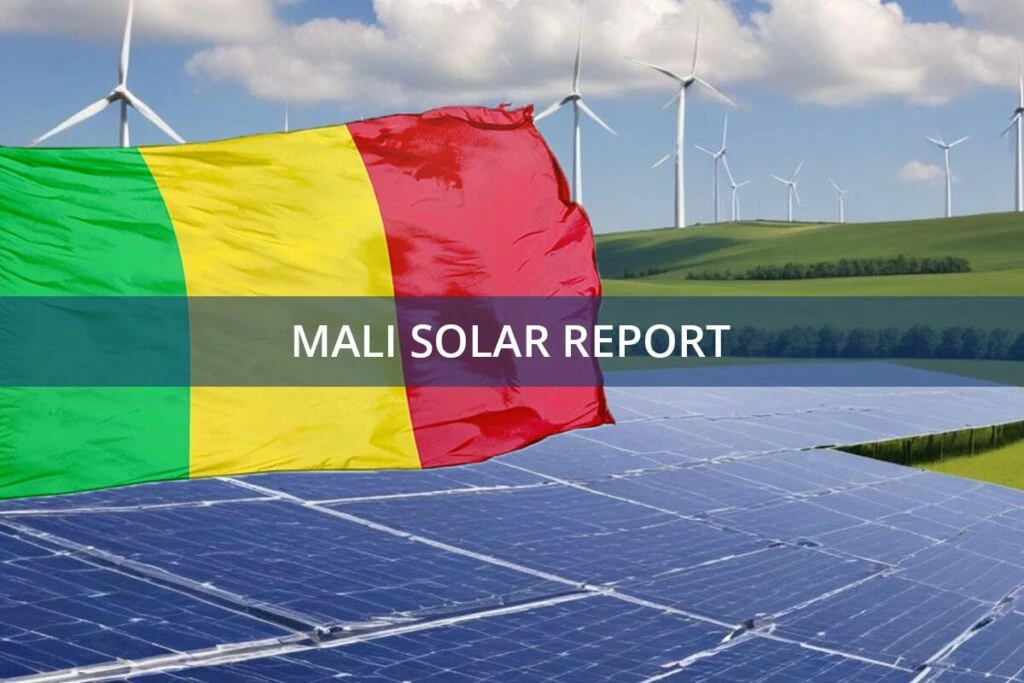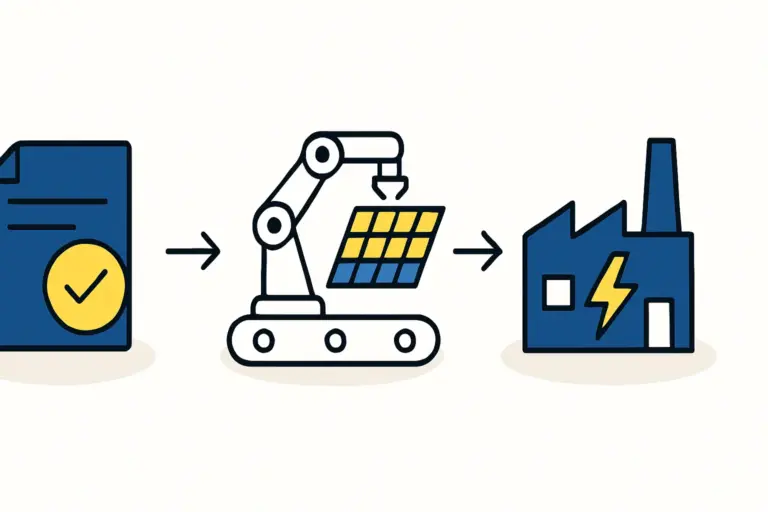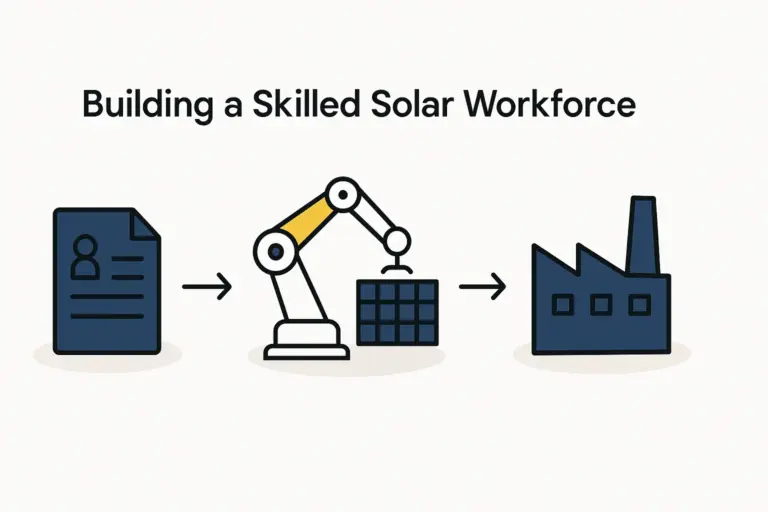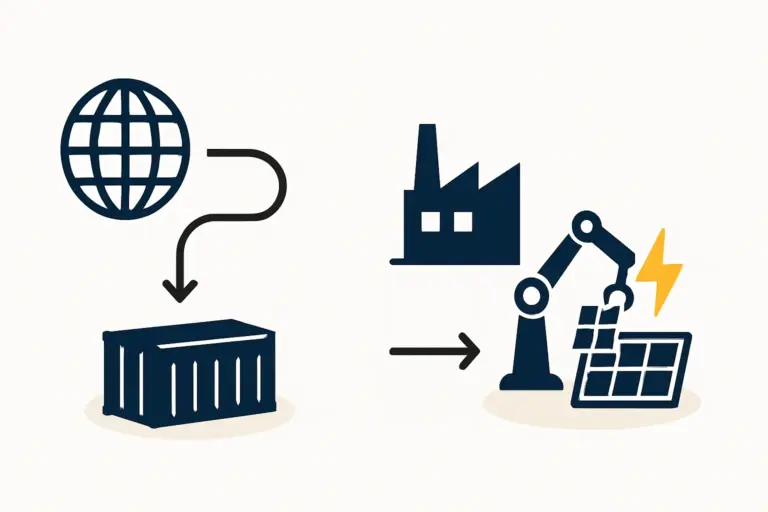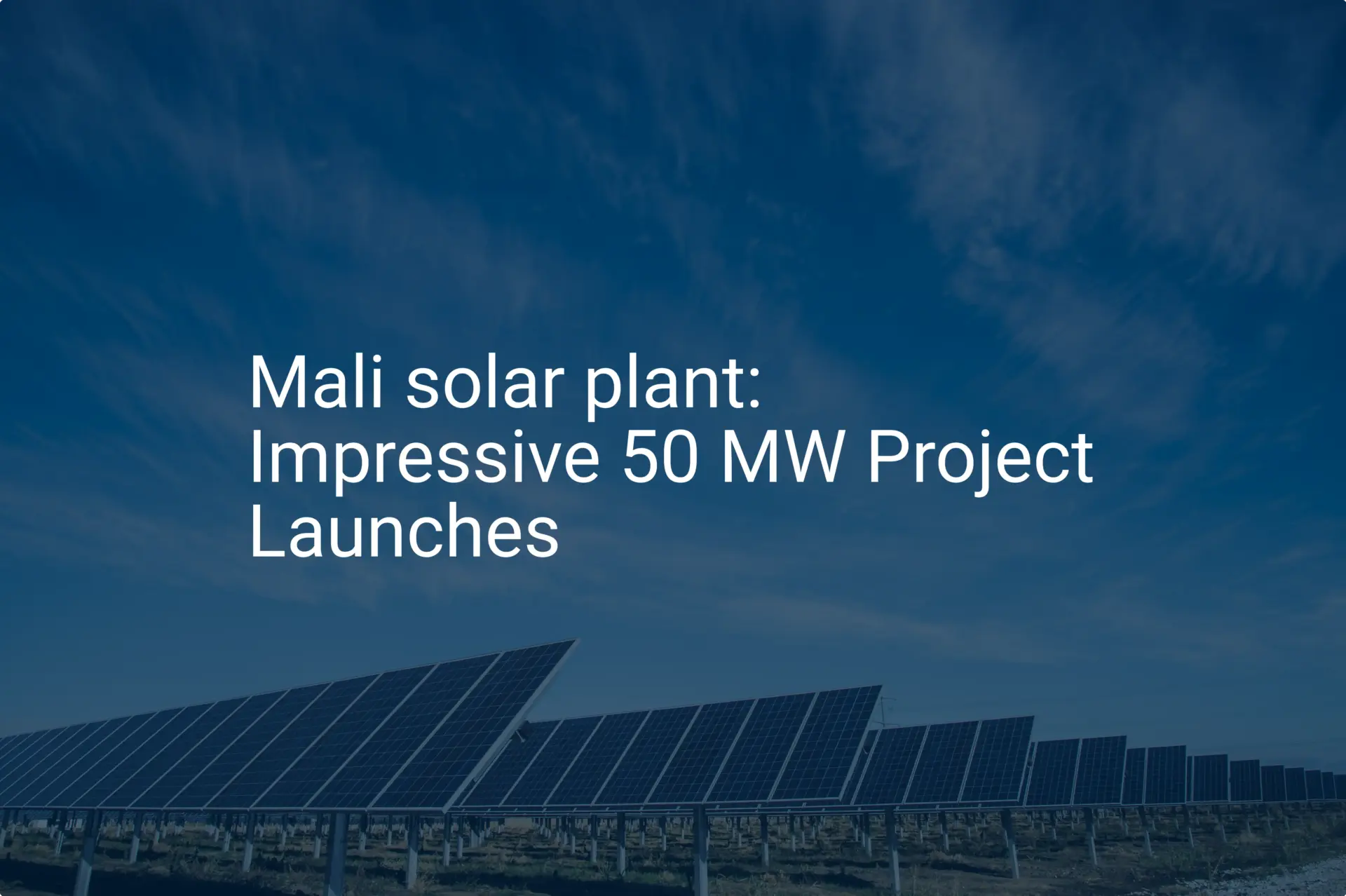An entrepreneur finalizes the procurement of high-quality machinery for a new solar module factory. But when the equipment arrives at the port of entry in Bamako, progress halts. Unexpected tariffs, complex paperwork, and bureaucratic delays create a logistical bottleneck that threatens the project’s timeline and budget. It’s a common scenario for investors entering new markets.
Fortunately for those looking to establish solar production in Mali, the government has created a supportive legal framework. Understanding these regulations is the key to turning a potential obstacle into a strategic advantage. This guide breaks down the Malian customs process, outlining its tariff structures and the significant exemptions available to investors in the renewable energy sector.
Understanding the Foundation: Mali’s Pro-Investment Framework
Mali has identified renewable energy as a priority sector for its economic development. To attract foreign and domestic investment, the government established a robust legal framework designed to reduce initial capital costs and streamline the setup of new industrial projects.
The cornerstone of this policy is Law No. 2012-016, the Investment Promotion Law. This legislation offers various incentives to qualifying businesses, focusing primarily on relief from import duties and taxes on essential equipment.
The key institution for implementing this law is the Agence pour la Promotion des Investissements au Mali (API-Mali). As the central point of contact for investors, the agency guides them through the application process and grants the official approvals needed to access these incentives. Engaging with API-Mali early in the planning stage is a critical first step for any investor.
The UEMOA Common External Tariff (CET): A Regional Overview
As a member of the West African Economic and Monetary Union (UEMOA, or WAEMU in English), Mali adheres to a Common External Tariff (CET) system. This system standardizes the duties applied to goods imported from outside the union.
The CET simplifies the tariff structure into four main categories:
- 0%: Social goods (e.g., essential medicines)
- 5%: Staples and raw materials
- 10%: Intermediate goods and semi-finished products
- 20%: Final consumption goods
Without specific exemptions, imported solar panel manufacturing machines would typically be classified as intermediate goods and attract a 10% tariff. This baseline underscores the significant financial advantage that government-approved exemptions provide.
The Key to Correct Tariffs: Harmonized System (HS) Codes
The Harmonized System (HS) is the international standard used by customs authorities worldwide to classify traded products. Assigning the correct HS code to each piece of imported equipment is fundamental to the customs process, as an incorrect code can lead to the wrong tariff, significant delays, and potential fines.
For example, finished solar modules are classified under HS code 8541.40. The machinery used to produce them—such as stringers, laminators, and cell testers—falls under different classifications within Chapters 84 and 85, which cover industrial machinery and electrical equipment.
The commercial invoice and shipping documents must list each machine with its precise HS code. This accuracy ensures that customs officials can correctly process the shipment and apply any relevant exemptions. Investors should work closely with their equipment supplier and a licensed customs broker to verify all codes before the shipment leaves its port of origin.

Unlocking Savings: How to Qualify for Customs Exemptions
The most valuable aspect of Mali’s Investment Promotion Law for a solar manufacturer is the potential for full exemption from customs duties and Value Added Tax (TVA) on imported capital goods.
To qualify for these benefits under the Régime A or Régime B of the investment code, a project must typically meet two main criteria:
-
Investment Threshold: The total investment must exceed 100 million XOF (approx. €150,000). A project involving a complete turnkey solar production line will comfortably surpass this amount, making it eligible.
-
Priority Sector: The project must operate in a sector deemed strategic by the government, which explicitly includes renewable energy.
Investors who meet these criteria can apply to API-Mali for an official approval certificate known as an agrément. This document legally grants the project exemptions from all import duties and taxes on the specified list of equipment needed to set up the factory. The exemption is valid for up to three years during the implementation phase.
A Step-by-Step Guide to the Customs Clearance Process
The import process is much more manageable when broken down into a logical sequence.
Step 1: Obtain Project Approval from API-Mali
Before any equipment is shipped, the investor must submit a detailed business plan and investment file to API-Mali. Upon approval, the agency issues the agrément that officially grants the project its tax and customs incentives.
Step 2: Prepare Comprehensive Documentation
The following documents are essential for a smooth customs clearance:
- Commercial Invoice: Detailing each piece of equipment, its value, and its correct HS code.
- Bill of Lading (or Air Waybill): The contract of carriage from the shipping line or airline.
- Certificate of Origin: Verifying the country where the goods were manufactured.
- Packing List: An itemized list of the shipment’s contents.
- The Agrément from API-Mali: The official document authorizing the exemptions.
Step 3: Engage a Licensed Customs Broker
Hiring a reputable, licensed customs broker (transitaire) in Mali is strongly advised. These professionals have deep knowledge of local procedures, maintain relationships with customs authorities, and can efficiently manage the declaration process on an investor’s behalf. Experience from past J.v.G. turnkey projects shows that a reliable local customs agent is a critical success factor.
Step 4: Customs Declaration and Inspection
Using the provided documents, the customs broker will file an official import declaration. Malian customs authorities will review the paperwork and may conduct a physical inspection of the goods to verify that the contents match the declaration. Once satisfied, they release the shipment.

Common Challenges and How to Prepare for Them
While the legal framework is clear, investors should be prepared for potential real-world challenges.
-
Bureaucratic Delays: Approval and clearance can sometimes take longer than anticipated. It’s wise to engage with API-Mali and the customs broker well in advance of the equipment’s arrival.
-
Incorrect Documentation: Minor errors on invoices or shipping documents can cause major delays. All paperwork should be meticulously reviewed by the investor, the supplier, and the customs broker before shipping.
-
Unexpected Fees: While the agrément exempts a project from customs duties and VAT, other minor fees may still apply, such as statistical fees (redevance statistique), port handling charges, or broker fees. A transparent customs broker will provide a complete estimate of all these costs.
Proactive planning and diligence are the best ways to mitigate these risks when starting a solar panel factory.
Frequently Asked Questions (FAQ)
How long does the customs clearance process typically take in Mali?
With all documents in order and the agrément secured beforehand, the clearance process at the port of entry can take anywhere from a few days to two weeks. However, the API-Mali approval process itself should be initiated several months in advance.
Can I get exemptions for raw materials as well as machinery?
The initial exemptions under the investment code are typically for the capital goods and equipment required to set up the factory. Separate incentive schemes may be available for the operational phase, which could cover raw materials. This should be discussed with API-Mali.
Is VAT (TVA) always exempt along with customs duties?
For qualifying projects under the Investment Promotion Law, the exemption generally covers both customs duties and the 18% Value Added Tax (TVA) on imported equipment.
What if my investment is slightly below the 100 million XOF threshold?
The thresholds are legally defined, so it is important to meet them. However, investors should ensure their total project cost—including shipping, installation, and initial setup—is accurately calculated, as it often exceeds initial estimates and may meet the requirement.
Do I need a local partner or company to benefit from these incentives?
You must establish a legally registered Malian entity to conduct business and receive the investment approval (agrément). The structure can be wholly foreign-owned.

Conclusion: Planning is the Key to a Smooth Import Process
Mali presents a compelling opportunity for investors in solar panel manufacturing, supported by a legal framework that actively reduces a primary barrier to entry: high capital expenditure on equipment. The availability of full exemptions on customs duties and VAT is a significant financial incentive.
Success, however, hinges on diligent preparation, a thorough understanding of the process, and collaboration with local experts. By engaging API-Mali early, ensuring documentary accuracy, and hiring a professional customs broker, investors can navigate the import process efficiently and keep their project on track for a successful launch.

